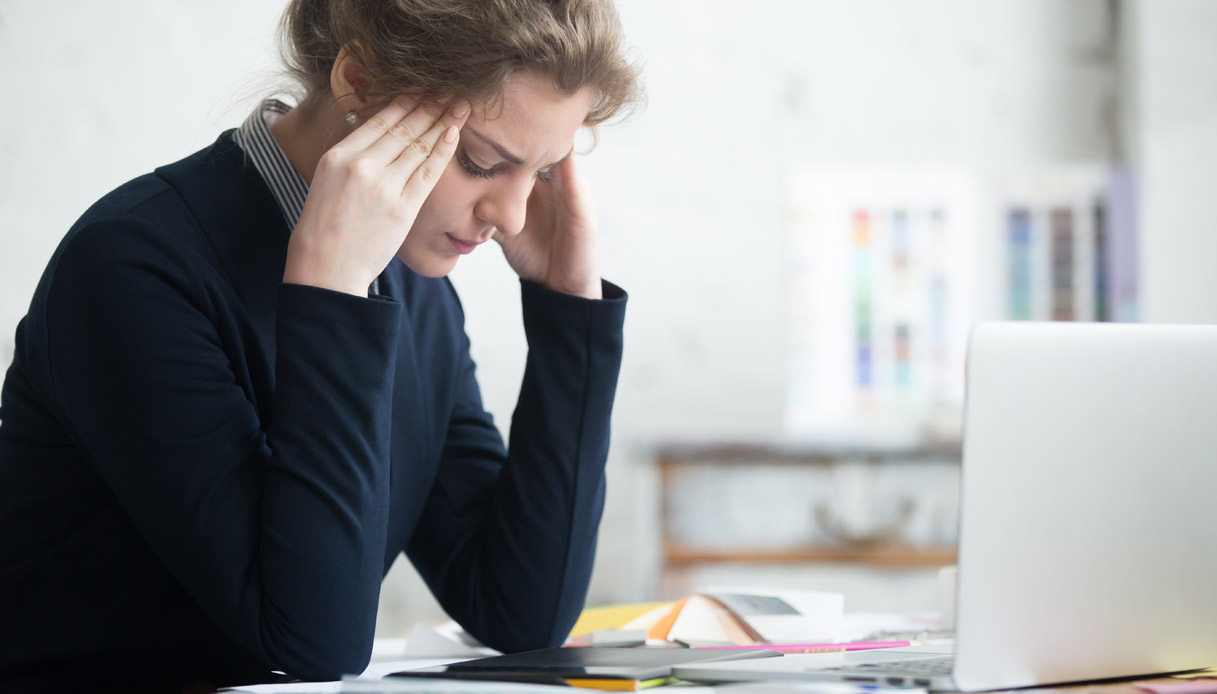A completely normal reaction. When an obstacle presents itself in front of us, the organism takes action to overcome it. If it is a short-lived phenomenon, of course, it does not create problems. But in the long run, it becomes harmful to the body. So first the pandemic, which fortunately is now loosening its grip, and now the conflict we are experiencing at a distance become elements that can certainly worsen the situation, giving rise to a series of ailments linked precisely to theexcessive emotional tension.
Among the most common are headache, reported by 48% of people, anxiety, nervousness, irritability (42.8%), muscle tension (39.6%) and sleep disturbances (32.2%), of which they are mainly women to suffer the most. As if that weren’t enough, the problem doesn’t seem to concern adults only. Nearly six out of ten people think they do young people are the segment of the population that has been most affected by the consequences of the pandemic. These percentages are highlighted in a research conducted by Human Highway for Assosalute.
A problem for all ages
According to Piero Barbanti, professor of Neurology at the IRCCS San Raffaele University in Rome, at the beginning of the pandemic with the first closures two years ago, there was a positive emotional tension in the population. “The emergency situation that suddenly broke out made us perceive the danger and it was precisely this sense of alarm that allowed us to endure two months of forced closure and to be able to create a new functional and useful balance without realizing it and without complaining – reports the expert.”
Then, in the subsequent phases of the pandemic, the extent of the danger decreased and the fear decreased, the situation changed. “Instead, it came to light a negative stress from Covid-19, since the subjective evaluation of the possible long-term continuation of limitations and risks has appeared, which has brought out a psychological rumination, a feeling of mistrust and chronic alarm – continues Barbanti.
Burnout, or the psychophysical exhaustion of the subject linked to work, has also increased, because stressful working methods such as agile work, teleworking and the lack of tangible human relationships, including those moments, have been added to the normal situations that determine it. breaks that accompany the normality of a working day, such as coffee at the bar with colleagues. This has caused an increase in symptoms such as insomnia, anxiety, depression in adults who, in some cases, to combat these disorders, have taken refuge in the abuse of alcohol and coffee “.
The survey shows that nearly 6 out of 10 respondents report how adolescents between 13 and 18 years are the most affected band. For 70% of Italians, even the youngest children, although with less evident levels of stress and anxiety than adolescents, did not emerge unscathed from the pandemic.
“Even though children show stress on different occasions and modalities than adults, their reactions include irritability, impulsiveness, restlessness, nervousness, sleep and eating disorders – continues Barbanti. The lack of sociability during the pandemic (DAD, abolition of group sports practices for non-competitive athletes) has profoundly influenced the development of the personality of the little ones and consequently the incidence of stress-related disorders “.
Tips for living better
At all ages, how can you deal with this situation? According to the survey, the doctor’s advice (especially among the over 65s) and the use of self-medication drugs (typical in the central segments of the population) are the two most common behaviors among the interviewees, in line with the trend observed in the second wave of pandemic (36.8% and 33.5% respectively).
This is followed by the pharmacist’s advice (16.3%), the use of the web (13.7%) and the advice of friends and relatives (8.7%), behaviors that are less and less common with increasing age. Compared to 2020, the percentage of those who do not ask for advice from anyone and do nothing to relieve the symptoms, which increases from 11.6% to 21.1%, highlighting that, after the most difficult phase of pandemic, the determination and attention with which stress disorders are treated has also lost its intensity.
Stress can instead be dealt with “by knowing it, and then doing an act of good will, consequently modifying the lifestyle and approaching self-medication – reports Barbanti.”
